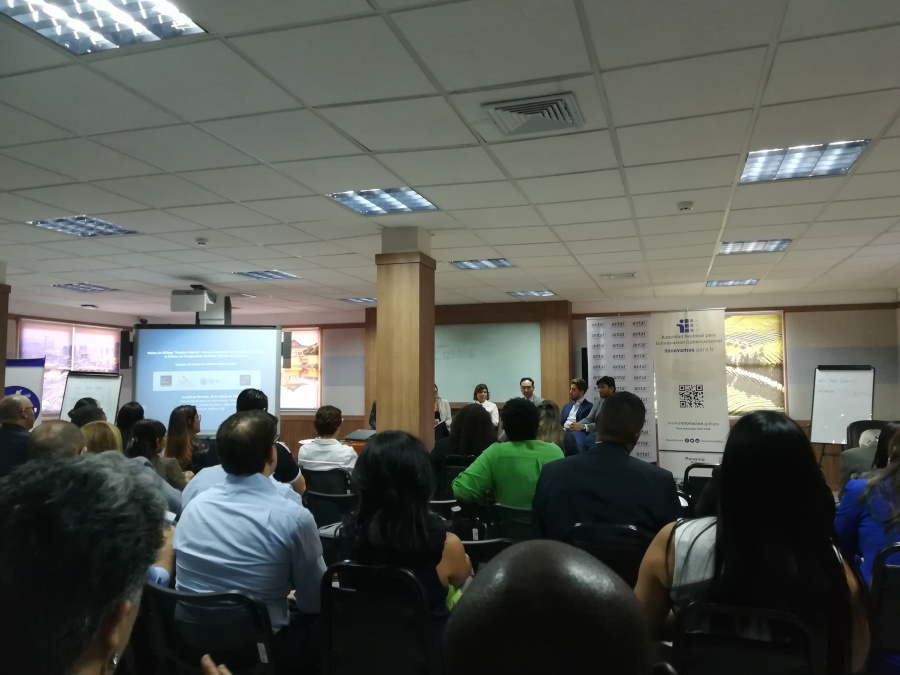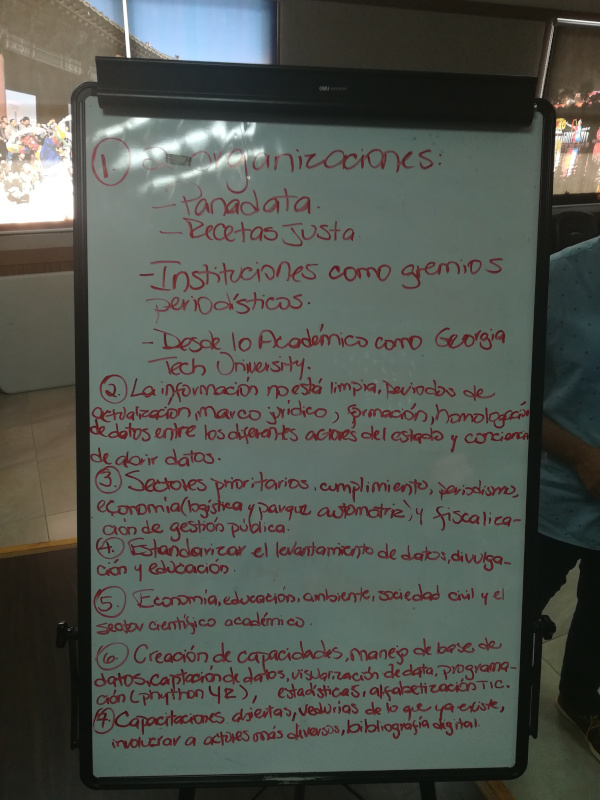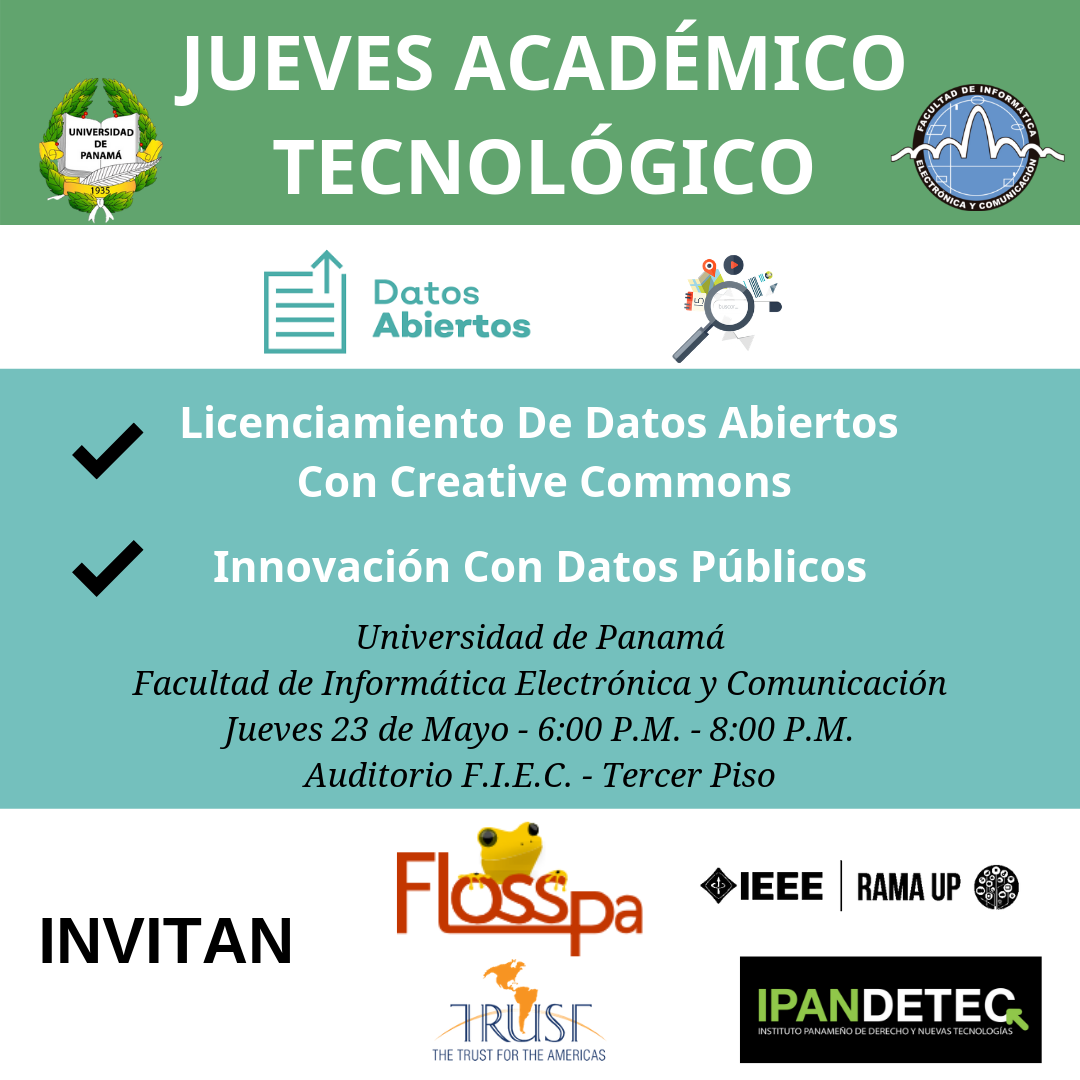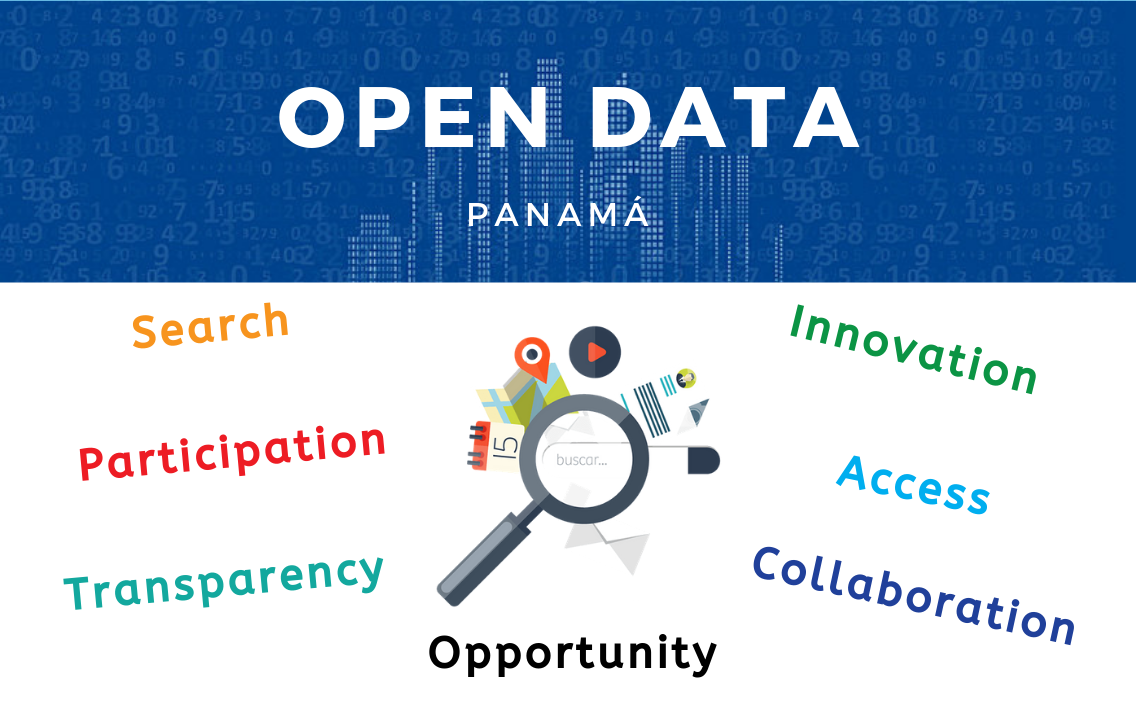Panama, according to the Open Data Barometer to the year 2016 ranked number 16 in the Latin American region that has currently registered 20 countries in this classification and worldwide was located at the site 77 of 115 countries measured, despite not being in a better position, progress is being made on the subject of Open Data, the revolution in the field of access to public information has pushed local authorities, organized groups of civil society and citizens to be part of this movement that seeks to make available to the Panamanian population the data of common interest to be used in new endeavors, mechanisms of transparency among other possible uses.
In recent years the country has been plagued by large corruption scandals and Open Data can be a way to motivate greater transparency in the information generated by the Panamanian State product of its actions, encourage accountability and that the citizen through this information kept vigilant and demands accounts. Every resident in the country will be able to know how and where the public resources are invested, also to propose solutions to the problems that can be detected in the analysis of this information that emanating the different public institutions.
Since November of the year 2017, Executive Decree No. 511 adopts the transparency policy of Open Government Data and The National Authority for Transparency and Access to Information (ANTAI), developed by resolution No. DS-3513-2018 of 17 January 2018, as one of the policies of transparency of obligatory fulfillment in all the institutions of the State, autonomous entities, semiautonomous, communes, local governments, communal meetings, companies and societies in which the State is part.
There has been a breakthrough in the legal framework of Open Data in Panama, but the work is not only going to consist of it, it could be a fundamental part and the basis for the enormous effort that still needs to be made. It will be a change of culture and internal processes in each of the State institutions, where some do not even have computer systems to carry all the processes, the lack of standardized instructions for capturing data, even worse, untrained personnel to manage a computer and office automation programs.
Therefore, at the end of the year 2018 the Government of Panama, through the National Authority for Government Innovation (AIG) and ANTAI reported that they had trained about 800 public functionaries, through workshops and awareness meetings that seek to promote the search for information, to give continuity, security and their respective publication. Similarly, they reported the publication of 355 sets of data on the Panama Open Data page, as well as the elaboration of instructions for the use of the portal.
Since last year I have been involved attending the calls and spaces that open to all citizens to try to contribute to the development of this topic, which I think is fabulous, in which I see great opportunities for entrepreneurship for those who are passionate about technological issues and the resolution of national problems.
This year, from March 11th to 17th, the ANTAI, AIG, OAS and The Trust for The Americas organized within the framework of the #OpenGovWeek the “Panama Open Government Week”. I attended one of these events, “Panama Abierto” at the Information Access Center Panama-Korea (CAIC), located in the City of Knowledge. It was a day where the organizers gave several speeches, exposing the progress of the legal part to encouraging technological entrepreneurs who attended the meeting.

Not everything was in listening talks, the dynamics mounted by the organizers also consisted of having feedback from those present, for this we divided into three work tables. In which I work we reached the conclusion that there is very little use of the Open Data in the country, are counted social or private entrepreneurship doing that, the information is not clean, there is no standardization in the lifting of the data.
The menbers of the table were interested as a priority to have economic data, education, civil society and the scientific academic sector, it was also concluded that efforts have to be made to create technical capacities such as the basic management data, visualization of data, use of programming languages such as Python and R, statistical management, among others.

As I mentioned earlier the effort to make is great and to this, I add that we should not expect the State to do everything, being responsible citizens we have to get involved in this project and be part of the solution. Last week I take the initiative to organize in the Faculty of Electronic Informatics and Communication of the University of Panama with the students of the IEEE Branch UP, an evening of 2 conferences to expose the topic to the students and teachers who witnessed the event.

I think if a greater dissemination of the topic is given, the population will become more involved and the authorities could be demanded with the data that we really need, just as we should seek to encourage creativity in students, multidisciplinary work to develop applications that solve problems that affect us.
On the night of March 23rd, we were accompanied by IPANDETEC (Panamanian Institute of Law and New Technologies) with the theme “Licensing Open Data with Creative Commons” and The Trust For The Americas with the speach “Innovation with Open Data”.
There is a lot of work to do, there are several organizations that are putting their effort, but you can be part of all this, if you are not a member of any organization you can write to me, I will explain how you could contribute and how to start getting involved.



What do you think?